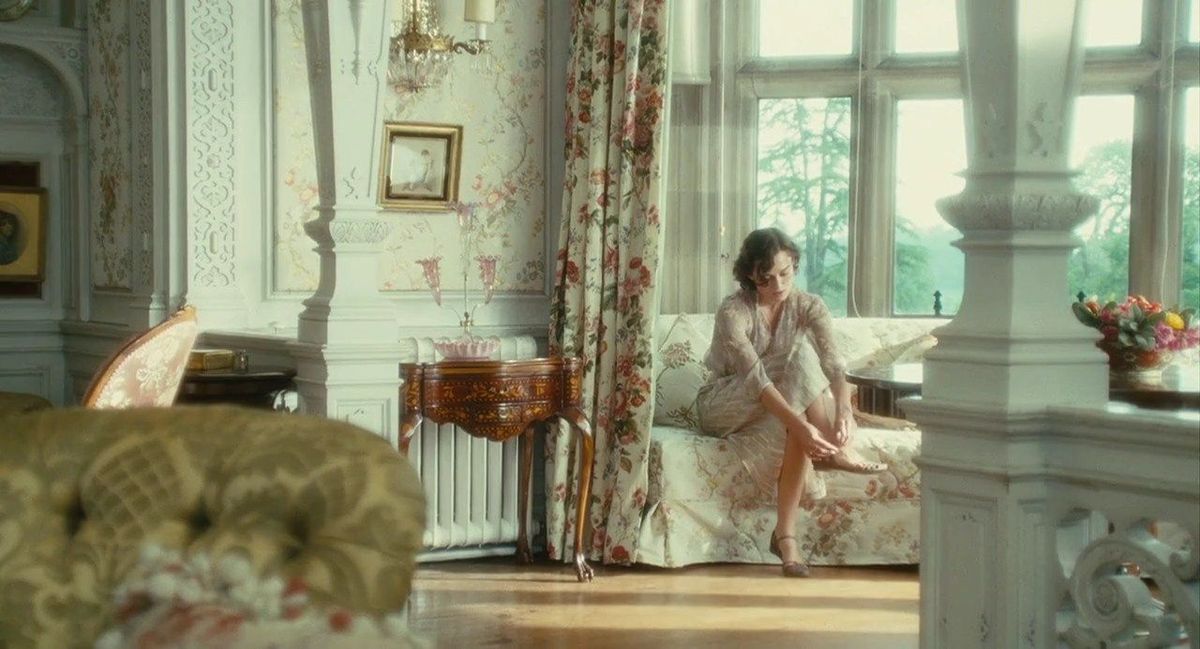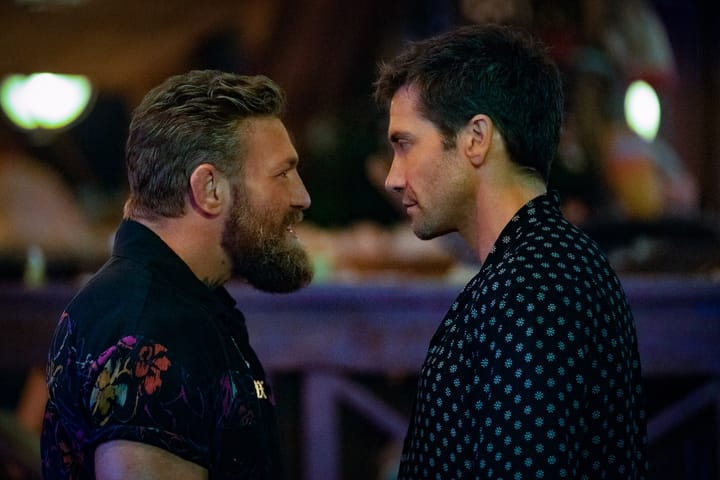Atonement (2007)
Is it okay for a film to ask a question and not have an answer? A stupid question, I know.

Is it okay for a film to ask a question and not have an answer? A stupid question, I know. So what about the movie that has an answer, but for whatever reason, chooses to hold it behind its back with its fingers crossed? It’s sort of a rabbit hole type criticism and (a caveat, a warning) I can’t really help myself. So:
What is atonement? What does it mean to atone, and who does it benefit? Is to benefit the impetus of atonement? And if you accept for a moment that it isn’t self-serving then to whom does it serve? “She did it to make herself feel better.” Does anyone else feel a big hot air balloon deflating over our heads? Those baskets are heavy. It would be wise to step aside.
I’m not even going to mention heteroglossia. Or okay: a narrator in fiction has a kind of authority that we implicitly accept. But there are also signposts used to signify the unreliability of narration and that can never be interesting (straight-up) if it’s just a simple confession, because it doesn't play fair. It's keeping the rules hidden so it can subvert them. Roger Ebert probably had a rule about this.
And okay, one of the reasons I love Madame Bovary is the heterodiegesis that’s floating around in it. We were at prep. And the fact that you’re a butterfly at the wrong end of Flaubert’s pin. And you’ll find all the arguments about how Bahktin’s “discourse” can’t really be applied to film criticism because the notion of narrative / narratee gets muddled anyway. So MB’s heterodiegesis is a posteriori, namely, inductive, built-in, upon self-reflection: in the present. The narrative games are within the narration, i.e., the signposts are being touched accordingly. It’s clever and it plays by the rules.
I realize this is a miasma from which it’s inordinately difficult to recover: anything cannot be good if you project what lacks onto it without taking what’s there at face value. It isn’t criticism, it’s whining. It's super easy to say ... so what? The rabbit-hole mentioned previously. What’s better?
With Vanessa Redgrave, we have the opportunity to see a life ruined by this mistake. It’s not really fair to say that this movie purposefully withholds what it considers “atonement” to be, so I guess it isn’t fair to accuse it of crossing its fingers behind its back. It just feels brushed to the side, discarded, unimportant when the book has a much more mature idea of what atonement is, embedded in the scenes where Briony is a nurse.
In the film, we don’t really get a good sense of what’s really happening there. We see her being a nurse, and get Cecilia Tallis’ off-hand remark to Robbie that “I think she’s trying to make up for what she did all those years ago.” But in the book, you have a much more secure rooting in the fact that she’s a terrible nurse, and she’s terrible because she thinks what she’s doing is making up for what she’s done. The effect crosses itself, undoes itself. The scene in the film where she takes care of Massive Head Wound Harry confers none of this, and its the closest we get to seeing her in action before we enter the historical revisionism of her fiction (presumably, I assume, because there is that scene of her writing the novel [which is her first, her ‘only’, novel, as revealed by Vanessa Redgrave in the third act interview]). It’s here, at the bottom of the barrel of monkeys, that the book pulls the rug out from underneath its reader, when Briony’s book gets rejected by Cyril Connolly that ties the reader into the clash of social structure that’s happening between Cecilia Tallis and Mr. Oxford-But-Poor Robbie which cuts to the quick of the book - the urge to be told a story, to find out “what happens.”
And it’s annoying, to be sure, to be told so explicitly the themes of a book by a rejection letter within the book, but it provides a mask and a touchstone through which we can evaluate the progress Briony has made as an older, more successful writer, and it justifies the slight-of-hand that seems so condescending in the movie (what happens, the actual literal telling of the story, which isn’t the story but is actually standing in for it at that point two-fold in the sense that the story has stopped and been supplanted by this elder Briony reflecting in purpose the “endgame” of her book which is condescending because we haven’t been exposed to the underpinning failure of Briony to actually “atone” as a nurse, and secondly, the literal what-happens that is alarmingly extra-textual (as in, not part of the story) at this point, given elder-Briony is telling us the end of the book she’s written and the actual end of the characters to whom she was never able to actually “atone”). So this is that Bergonian culture clash thing that ultimately sinks the ship: the notion that there are different minds out there struggling to cope with the notion that there are other equally sentient (and equal) minds enduring the same.


